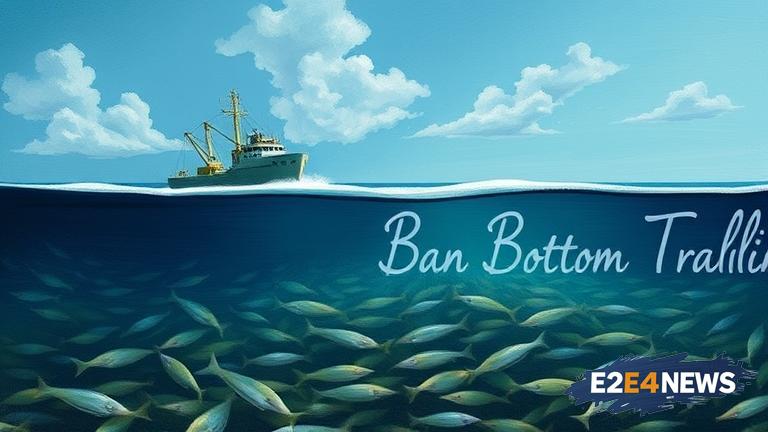In a groundbreaking move, the Swedish government has announced a ban on bottom trawling, a controversial commercial fishing practice that has been widely criticized for its devastating impact on marine ecosystems. The decision is a significant step forward in the country’s efforts to protect its marine environment and promote sustainable fishing practices. Bottom trawling, which involves dragging heavy nets along the seafloor to catch fish, has been shown to cause irreparable damage to habitats and ecosystems, including the destruction of coral reefs and the loss of biodiversity. The Swedish government has recognized the need to take action to mitigate the effects of this practice and has implemented the ban as part of its broader strategy to protect the country’s marine environment. The ban is expected to have a significant impact on the commercial fishing industry in Sweden, with many fishing vessels being forced to adapt to new, more sustainable practices. However, the move has been widely welcomed by environmental groups and conservationists, who have long been advocating for an end to bottom trawling. The Swedish government has also announced plans to provide support to fishing communities affected by the ban, including funding for the development of new, sustainable fishing practices. The ban on bottom trawling is just one part of Sweden’s broader efforts to protect its marine environment, which include the establishment of marine protected areas and the implementation of measures to reduce pollution and promote sustainable fishing practices. The country has also been working to promote sustainable fishing practices through education and outreach programs, aimed at raising awareness among fishermen and the general public about the importance of protecting the marine environment. The ban on bottom trawling is a significant step forward in this effort and is expected to have a positive impact on the country’s marine ecosystem. The move has also been welcomed by the European Union, which has been working to promote sustainable fishing practices across the continent. The EU has implemented a number of measures aimed at reducing the impact of commercial fishing on the marine environment, including the establishment of marine protected areas and the implementation of catch limits and other conservation measures. Sweden’s ban on bottom trawling is seen as a model for other countries to follow and is expected to have a significant impact on the global effort to protect the world’s oceans. The country’s commitment to marine conservation is also reflected in its participation in international agreements aimed at protecting the marine environment, including the United Nations Convention on the Law of the Sea. Overall, the ban on bottom trawling is a significant step forward in Sweden’s efforts to protect its marine environment and promote sustainable fishing practices, and is expected to have a positive impact on the country’s marine ecosystem and the global effort to protect the world’s oceans. The move is also seen as a major victory for environmental groups and conservationists, who have been advocating for an end to bottom trawling for many years. The Swedish government’s decision to ban bottom trawling is a testament to the power of advocacy and the importance of taking action to protect the marine environment.
